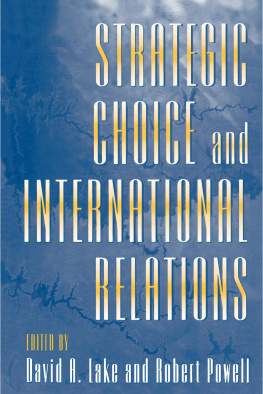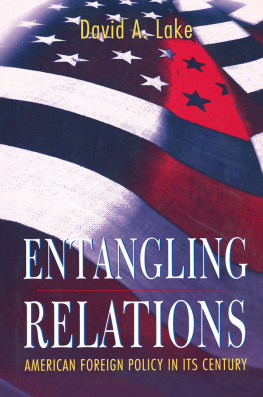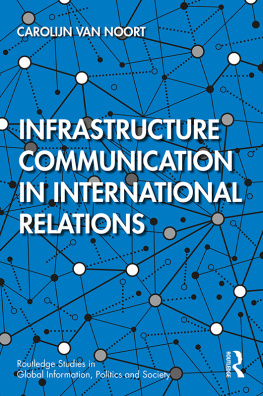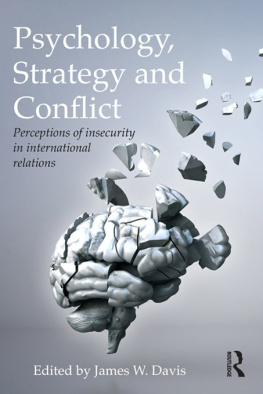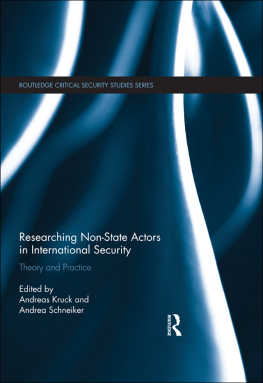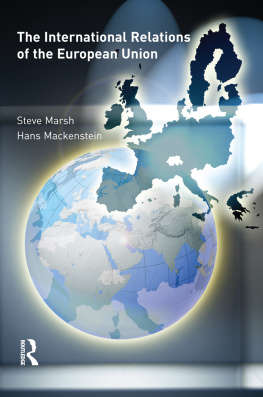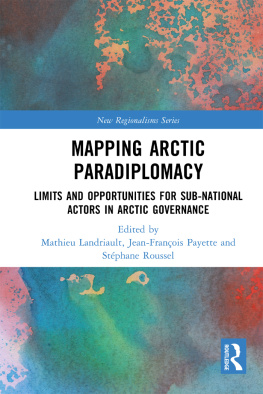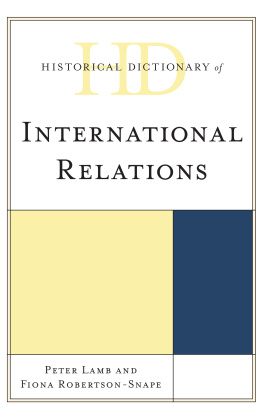STRATEGIC CHOICE AND
INTERNATIONAL RELATIONS
STRATEGIC CHOICE AND
INTERNATIONAL RELATIONS
Edited by
David A. Lake and Robert Powell
PRINCETON UNIVERSITY PRESS PRINCETON, NEW JERSEY
Copyright1999 by Princeton University Press
Published by Princeton University Press, 41 William Street,
Princeton, New Jersey 08540
In the United Kingdom: Princeton University Press,
Chichester, West Sussex
All Rights Reserved.
Library of Congress Cataloging-in-Publication Data
Strategic choice and international relations /
edited by David A. Lake and Robert Powell.
p. cm.
Includes bibliographical references and index.
ISBN 0-691-02698-X (cl : alk. paper).
ISBN 0-691-02697-1 (pb : alk. paper)
eISBN 978-0-691-21309-5
1. International relations. 2. Strategic planning.
I. Lake, David A., 1956 . II. Powell, Robert, 1956 .
JZ1305.S765 1999
327.1'01dc21 99-12215 CIP
http://pup.princeton.edu
R0
Acknowledgments
THIS VOLUME grew out of the multicampus Workshop on International Relations sponsored and funded by the University of Californias Institute on Global Conflict and Cooperation. The workshop began in September 1990, with a small retreat of scholars from throughout the University of California system to reflect on the end of the cold war and its meaning for international politics. It then grew into a floating seminar, meeting on different University of California campuses from 1991 to 1994. Over the course of these gatherings, we came to appreciate that we shared a common perspective on how to study international relations that was, nonetheless, poorly articulated in the existing literature. Strategic Choice and International Relations is an attempt to capture this common perspective for ourselves and others, as well as to probe its strengths, weaknesses, and limitations.
The first brainstorming session that led to this volume was held in May 1994. In addition to the authors of the chapters included here, Peter Cowhey, Judith Goldstein, Stephan Haggard, John Odell, and Randolph Siverson helped define our subsequent direction. Drafts of the chapters were discussed at meetings in Laguna Beach in December 1994, Santa Barbara in July 1995, and San Diego in September 1996, as well as at the annual convention of the American Political Science Association (APSA) in September 1995. We are grateful for the comments of Benjamin Cohen, James Fearon, Steph Haggard, Lisa Martin, and Paul Papayoanou, who participated in the Santa Barbara meeting, and James Caporaso, Judith Goldstein, and Beth Simmons, who served as discussants on two panels at the APSA meetings.
Perhaps most important, we appreciate the patience and endurance of our authors, who produced numerous drafts of their chapters with good cheerif not always great speed. We have learned immensely from their efforts and have enjoyed ourselves enormously in the process.
In addition to supporting the Workshop on International Relations, the Institute on Global Conflict and Cooperation (IGCC) funded the preparation of this volume. We are grateful to then IGCC director Susan Shirk for her support and to the staff at IGCC for their assistance. We are also pleased to recognize Jennifer Pournelle and Caryn Sugar at IGCC, Lynn Edwards at Bookmark Media, and Malcolm Litchfield and Rita Bernhard at Princeton University Press for helping to turn seven chapters into a book.
STRATEGIC CHOICE AND
INTERNATIONAL RELATIONSCHAPTER ONE
International Relations: A Strategic-Choice Approach
DAVID A. LAKE AND ROBERT POWELL
THE STUDY of international relations has long been rent by large and often unproductive paradigmatic debates. Over its brief history, the discipline has been split between idealists and realists, realists and liberals, and, most recently, neorealists and neoliberal institutionalistsnot to mention the various minor sects and other apostasies that have also fractured the field. In addition, international relations scholars have argued endlessly about the role of theory and method, with important divisions occurring between traditionalists and behaviorists, quantitative and qualitative researchers, and now various positivists, postpositivists, and postmodernists. Within each of these so-called great debates, moreover, scholars have disagreed over the relative importance of unit (domestic) and systemic-level (international) causes of behavior, the applicability of theories of security policy (high politics) to economic policy (low politics), and vice versa, and what separates the study of international politics from the rest of political science. These numerous divisions, and the tendency to mistake debate for explanation, have long stymied progress in understanding international relations.
The purpose of any theoretical framework is to bring intellectual order to a domain, identify accepted and contested knowledge, and guide future research. In this volume, we attempt to pull together many diverse strands of existing theory and research in international relations into what we call a strategic-choice approach. This approach begins with a simple insight. Students of international relations, and of politics in general, are typically interested in explaining the choices or decisions of actorsbe these actors states, national leaders, political parties, ethnic groups, military organizations, firms, or individuals. These choices, moreover, are frequently strategic; that is, each actors ability to further its ends depends on how other actors behave, and therefore each actor must take the actions of others into account. Outcomes ranging from the foreign policies of individual states to international phenomena such as war or cooperation cannot be understood apart from the strategic choices actors make and the interaction of those choices.
The strategic-choice approach is comprised of three principal components. The first is to make strategic problems and interactions the unit of analysis. Rather than beginning with predefined actors as the units of analysis, such as states, the strategic-choice approach takes the interaction of two or more actors as the object to be analyzed and seeks to explain how this interaction unfolds. We believeand this book is an effort to showthat making strategic interactions between actors the unit of analysis provides a fruitful and productive way to study international politics.
The second component is a way of organizing research on the strategic interactions that arise in international relations. We distinguish first between actors and their environments. In turn, actors are defined by the preferences and beliefs they hold, and the environment is disaggregated into the set of actions and the information available to the actors. These analytic categories serve as the basis for conceptual experiments that recur at all levels of strategic interaction. It is this analytic scheme that gives theories within the strategic-choice approach their explanatory power.
The third is a methodological approach to analyzing strategic problems or, perhaps more accurate, a set of methodological bets about what will prove to be productive ways to think about strategic interactions. United by an essential pragmatism that emphasizes the construction of theories appropriate to the question under investigation, the strategic-choice approach, as will be elaborated below, is agnostic toward the appropriate level of analysis in international relations, presumes that strategic interactions at one level aggregate into interactions at other levels in an orderly manner, adopts a partial equilibrium perspective, and avoids, when possible, untheorized changes in preferences or beliefs as explanations of changes in observed behaviors.

